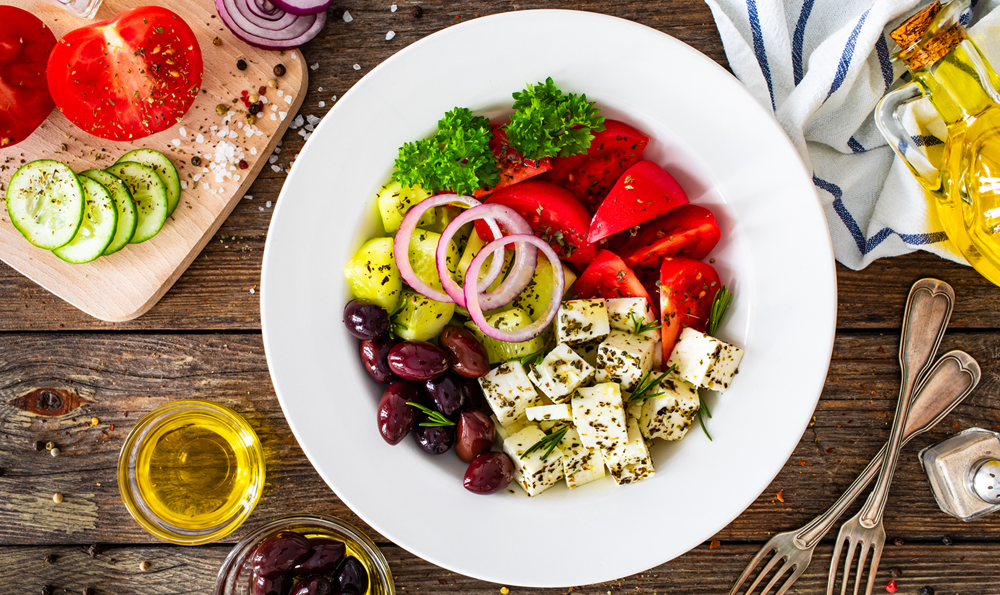What you eat and drink and how active you are can impact your risk of many different types of cancer. The American Cancer Society estimates that 1 in 5 cancers is caused by factors like being overweight, poor nutrition, a sedentary lifestyle and high alcohol consumption.
Emily Perry MS, RD, CNSC, CSO, an oncology dietitian with Atlantic Health System, shares how diet, exercise and other lifestyle modifications can lower your risk for a variety of cancers.
Maintain a healthy weight to lower cancer risk
Being overweight or obese has been linked to an increased risk of developing 13 different kinds of cancer.
The American Institute of Cancer Research recognizes certain behaviors as increasing your risk of putting on excess weight, including a red meat-rich diet, processed food consumption, sugar-sweetened beverages and excess screen time. Fortunately, you can combat these factors by:
- Eating a Mediterranean diet
- Getting your recommended amount of daily fiber
- Getting plenty of aerobic activity including walking
Decrease cancer risk with physical activity
According to the National Cancer Institute, regular physical activity is not only a critical part of maintaining a healthy weight but also helps regulate hormones like estrogen and insulin, reduce inflammation and boost the immune system — all of which can help lower your risk of developing cancer.
Adults should aim for 150-300 minutes of moderate-intensity physical activity per week or 75-150 minutes of vigorous activity. Of course, going above these recommendations is even better.
Children and adolescents should work toward at least an hour per day of moderate or vigorous activity.
Adults and children should also limit sedentary behaviors like excess screen time.
Eating your way to lower cancer risk
Certain types of foods have been shown to reduce your risk of developing cancer. The best foods to lower cancer risk include:
- Fruits and vegetables: Try to eat the rainbow with produce in a variety of colors
- Plant-based proteins: Look for fiber-rich legumes like beans and peas
- Water: Choose water instead of sugary drinks
- Whole grains: Aim to get three servings per day
“We have a lot of evidence linking processed foods and red meats with cancer,” says Perry. “The link between red meat and colorectal cancer is particularly strong. To balance this risk, you can consider swapping red meat for plant-based proteins like nuts, tofu, beans or edamame.”
When possible, stick to whole foods and limit taking supplements to get your nutrition.
“Dietary supplements have little effect on curbing cancer risk,” says Perry. “Food is the best source of vitamins and minerals for your daily diet.”
Finally, there are strong connections between alcohol consumption and cancer risk. If you choose to drink, limit alcohol to no more than one drink per day for women and two drinks per day for men.
“The path to reducing cancer risk doesn’t have to be complicated,” says Perry. “Maintaining a healthy weight, staying active, eating a healthy diet and limiting alcohol can all lower your risk of developing cancer down the road.”
Be proactive about health
To stay safe and healthy, it's good to have a primary care provider who knows and understands your health history and wellness goals.













